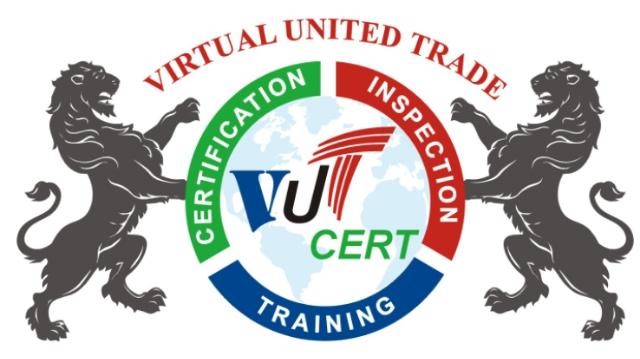ISO 50001 Certification
ISO 50001 Certification- Energy Management System
ISO 50001 Certification is a set of standards for implementing Energy management systems (EnMS) in an organization. It is an international standard that was last published in 2018 and enables organizations across the globe to apply international best practices for energy management.
Several studies shed a positive light on the effect of implementing the ISO 50001 standard. Implementing the ISO 50001 standard can cause cumulative energy savings of 62 exajoules by 2030, which in turn can save up to $600 bn in energy costs and about 6500 Mt of CO2 emissions. Thus, apart from affecting the environment positively, ISO 50001 certification can be greatly helpful for the finances of your organization.
Ever since the industrial revolution, there has been a rise in global temperature. But it is only recently that awareness for containing global warming has taken a priority in our day-to-day conversations. The countries on their part are trying to minimize the impact on the environment by introducing several legislations to deter the practice of such activities that amount to a high carbon footprint. This has led to an increase in the demand for maintenance of energy management systems (EnMS) in organizations by implementing the ISO 50001 standard.
ISO 50001 Certification Principles:
Customer focus – aiming to improve for the betterment of the interested parties and customer, this will help one sustain customer, increase customer base, makes sure to communicate their needs and expectation by monitoring throughout the organization.
Leadership – to achieve quality objectives leaders need to establish unity of purpose which is by aligning its strategy, policies, procedure and resource this will lead to better coordination of the organization’s processes one needs to establish a culture of trust and integrity, provide people with required resource, training, authority to act with accountability.
Engagement of people – for efficiency involve people of all levels, this can be done by communicating with the employees their needs in the organization, sharing knowledge, and experience, recognizing people’s contribution, learning, and improvement.
Process approach – when activities are understood and then executed then the efficiency of the delivered output will increase, by understanding organizations’ capabilities and determining resource constraints prior to action.
Improvement- improvement is important for an organization to maintain the current level of performance and to even keep on developing, this can be done by giving proper training and letting them understand that how does a work happens with that track, review and audit planning, implementation, recognize and acknowledgment, which will result into anticipation of internal and external risks and opportunity, improved process performance.
Evidence-based decision making – learn from mistakes, it is simply that decisions should be driven from evaluation of data, this will help one take better efficient solutions adding more, intuitions should never be neglected.
Relationship management – manage relations with relevant interested parties such as providers, one can achieve by keeping a well-managed supply chain that provides a stable flow of products and services, determining interested party’s relationship that needs to manage.
ISO 50001 Benefits
To achieve large energy savings, reduce the risks, enhance your competitiveness, and boost your image in the market, adopting EnMS can prove to be a strategic investment for your organization. Every nation has its own set of legislation for limiting the carbon footprint of any nation. Getting an ISO 50001 certification helps in complying with those legislations.
Why ISO 50001 Certification?
Implementation of ISO 50001 standard leads to a reduction in usage of energy and an increase in productivity. ISO 50001 is a good return-on-investment as with effective implementation, you can improve your energy and cost savings. Since it follows the common High-Level Structure as that of ISO 9001 and ISO 14001, integrating them together is easier.
Its global acceptance makes ISO 50001 truly universal, thereby, opening up huge opportunities for your business. With the implementation of ISO 50001 standards, you can meet global climate commitments, such as the COP 21 agenda.
ISO 50001 enables innovation in the organization for achieving energy efficiency. By embedding the energy management practices in the usual business processes, ISO 50001 helps in inculcating a culture of sensible energy consumption.
Quick Contact
[contact-form-7 id="8"]
Download Certification Pdf - Implementation Guide
about VU Certification
Frequently Asked Questions
What is ISO 50001 certification?
It is an Energy Management System (EnMS) certification, built on the lines of ISO 50001 standard.
Who can go for ISO 50001 certification?
Any organization, regardless of shape, size or sector of operation, who wants to reduce the carbon footprint and manage their energy resources.
What are the benefits for the organization?
The main benefits for the organization as make you more energy– efficient and demonstrates your environment friendliness, helps you in achieving your ecological goals, makes your compliant to several laws related to energy conservation, Cost effective as it helps in reducing wastages and liability costs and Boosts your reputation in the market.
What is the methodology for ISO 50001 certification?
It Build an ISO 50001 EnMS, Performs internal and management audits, Correct the identified gaps, Document your processes and Invite a certification body for the final audit.
Looking for ISO Certification or Training Services?
Join one of the India’s leading ISO certification bodies for a straightforward and cost-effective route to ISO Certifications.
